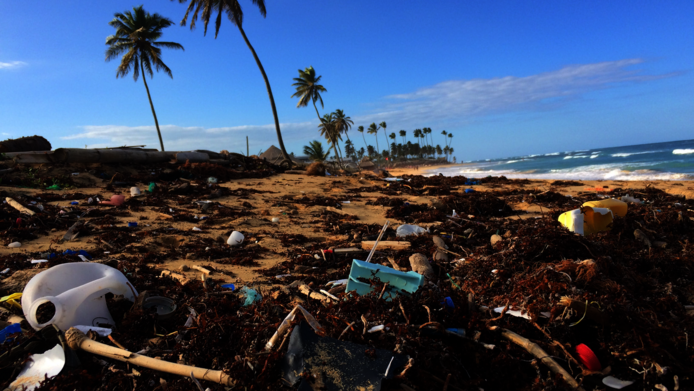No socio-ecological transformation in sight?

Long before the corona crisis hit, it became clear that the world is increasingly facing a state of emergency. Burning forests, melting glaciers, a rapid loss of biodiversity and civil wars with hundreds of thousands of refugees are confronting people with consequences the full impact of which cannot yet be fathomed. Despite all this, global consumption of natural resources has continued to rise, as have CO2 emissions and social inequalities; biodiversity is declining and the wrangling over remaining resources is becoming fiercer. Ingolfur Blühdorn explores this paradox and dilemma from the standpoint of social sciences. At the Vienna University of Economics and Business Administration, Blühdorn, the head of the Institute for Social Change and Sustainability IGN, sets out to answer the question of why we have not seen the socio-ecological transformation of society come about. He has just published a book about this “sustained unsustainability”, as he calls it, which offers a diagnosis of the present situation through the lens of environmental sociology. The findings are based on many years of research of the type currently being conducted in a research project funded by the Austrian Science Fund FWF. Blühdorn and his team are focusing on the potential of urban experiments. “We observe that environmental policy interventions have become increasingly local and experimental,” reports research-team member Margaret Haderer, a political scientist. Seeking an explanation for this trend, the researchers are looking at two different approaches: those that are driven by technological innovation and growth – such as smart-city concepts – and those “grassroots” initiatives that spring from within civil society, such as ecological housing projects, repair cafés or food co-ops.
Lack of socio-political will
Could transformation on a small scale lead to a large-scale turnaround? Blühdorn’s team is sceptical, although they admit that changes on a small scale at least have the potential to trigger larger transformations. However, there is growing doubt among scientists that a turnaround in climate policy can be achieved through green growth facilitated by technology. On the other hand, post-growth discourse, i.e. challenging capitalist market principles, was already observable in the 1970s and ‘80s. In addition, there is a third factor that weighs in heavily: “We still see a socio-political insistence on ‘carrying on as before’ in respect of pivotal aspects, which will presumably continue to be the central policy even after the corona crisis,” emphasizes Haderer. That said, the fact that states are quite capable of taking measures in the name of a common good – which is currently health – is also becoming apparent in the present crisis. “The coronavirus crisis reminds us of the price that modern societies have paid, particularly since the mid-1990s, to ensure the growth and profitability of the economic system,” notes principal investigator Ingolfur Blühdorn. Even after the financial and banking crisis of 2008/2009, the system was propped up by state intervention, at that time to save the economy. This led to a tightened austerity policy, which, among other things, massively promoted the overuse of natural resources.
Regulation as core policy task
In principle, Blühdorn considers the state interventions that society is currently experiencing in the corona crisis as harbouring potential for policy-makers to show a more active willingness to implement future measures not only to protect the economy, but also to protect social security and ecological sustainability. In view of the very limited financial scope expected for years to come, however, Blühdorn is concerned that the same scenario may well to repeat itself: state intervention will once again focus on creating the most favourable conditions possible for the economy rather than on correcting the social, welfare-related and ecological mistakes made in the decades of market liberalism – although such corrections are the prerequisites for a “healthy” economy and social balance. Blühdorn affirms that introducing regulatory measures is one of the core tasks of policy-makers. “Right now, the corona crisis is a very clear reminder of this. However, political regulation cannot hinge on scientific or autocratic imposition, but must always be negotiated in a democratic manner. “
Personal details Ingolfur Blühdorn is Professor for Social Sustainability and head of the Institute for Social Change and Sustainability (IGN) at the Vienna University of Economics and Business Administration (WU Wien). His research focuses on political sociology, social theory, the transformation of modern democracies and environmental and sustainability politics. Margaret Haderer is a political scientist who focuses on urban research, environmental policy, political theory and social theory. She holds a post-doc research position in the FWF project Urban Experiments in Socio-Ecological Transformation (2018-2022).
Publications





